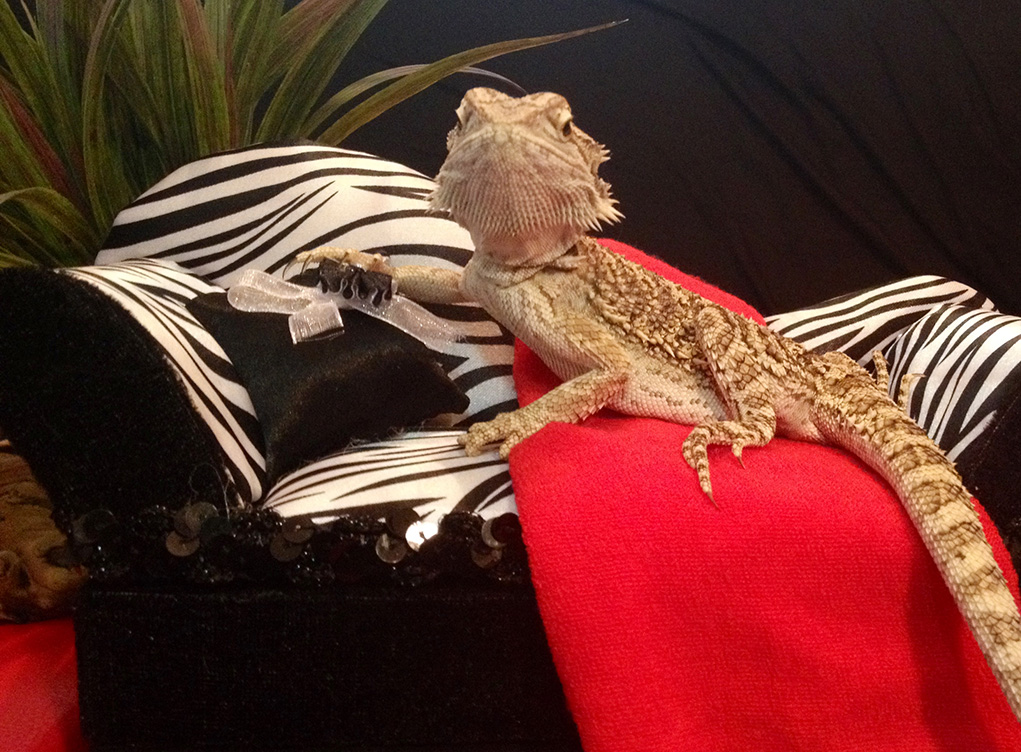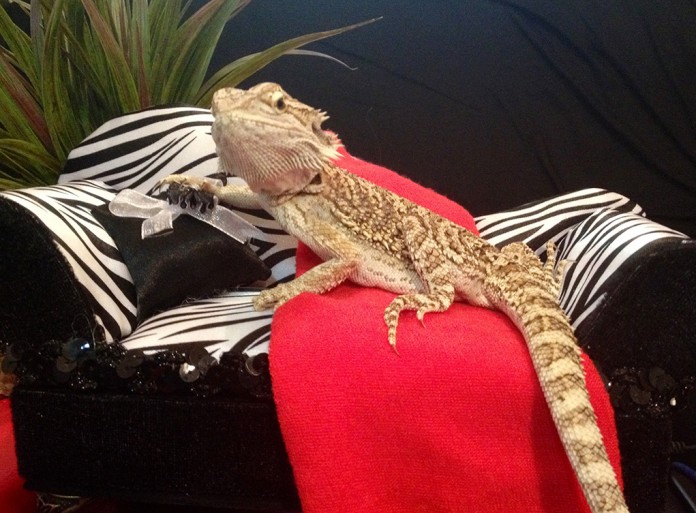Bearded dragons (Pagonavitticeps) are a type of lizard native to the arid and semiarid regions of Australia. These lizards are well-known for their name-sake “beard” of scales under their chin which they can puff out and change color if they feel threatened. In America, bearded dragons have become a staple in the pet trade since the 90s. Now, over a decade later, bearded dragons remain a huge hit with American families, and can be found in a variety of colors and patterns.

These lizards are very calm, especially once they are full-grown. They rarely bite, even when pestered and petted by small children. As juveniles, bearded dragons tend to be a bit more skittish, but with proper handling they quickly adjust to captive life with humans and easily tolerate handling. They are also social animals when kept in small groups and display a variety of body signals to communicate with their cage mates. For families with younger children who are looking for a good hands-on pet reptile, the bearded dragon is an excellent option. Of course, children should always be supervised while handling any reptile and care should be taken to always wash hands after handling to prevent the spread of germs and bacteria.
Adult bearded dragons generally require a larger tank or terrarium (~40 gallons per adult), a heat light and UV light, water bowl, newspaper to line the bottom, and a couple branches and hide boxes to furnish with. When kept at the right temperatures and given the proper diet, bearded dragons generally thrive in captivity, living an average of six to eight years. As omnivores, beardies enjoy a variety of daily greens with the occasional mix of fruits and veggies added in. Crickets, roaches and other insects are great sources of protein and watching beardies hunt hopping crickets can be very amusing.
Because of their immense popularity with the general public, bearded dragons are readily available in pet stores, at reptile shows and directly from breeders, either locally or online. Here in Phoenix, families can also adopt bearded dragons from the Phoenix Herpetological Society, a reptile rescue organization that takes in unwanted pet reptiles, and rehomes eligible critters, including bearded dragons of all sizes and ages. Baby bearded dragons are relatively inexpensive., especially for babies of normal or natural color phases. For the more adventurous owners, bearded dragons also come in a variety of colors, from flame red to pastel whites and purples. They can even come in a scale-less variety, which can be very appealing, but also requires some extra care to keep their skin from drying out. Typically, the more elaborate the color and pattern, the more expensive they are.
Recommended veterinary care for bearded dragons includes an annual physical exam and annual fecal check for healthy dragons, and check-ups anytime they are having a health concern. Here at Dove Valley Animal Hospital, Dr. Kiedrowski sees bearded dragons as well as other reptiles, and will take the time to discuss bearded dragons’ habitat and nutritional requirements. He always checks fecal samples even for healthy beardies as they can carry parasites, sometimes without showing any signs of illness. If you are considering adding a bearded dragon to your family, feel free to call us anytime if you have questions or concerns.
Kristen Heinzel is a Veterinary Assistant at Dove Valley Animal Hospital which is located at 4815 E. Carefree Hwy #116. Visit http://www.dovevalleyah.com/index.php or call 480-595-5731 for more information.





